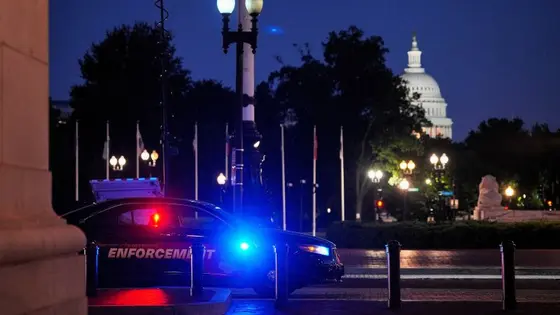T4K3.news
LA deployment tests limits of federal military authority
Three officials testified about the Los Angeles National Guard deployment, examining legal boundaries and the use of Title 10 in protests.
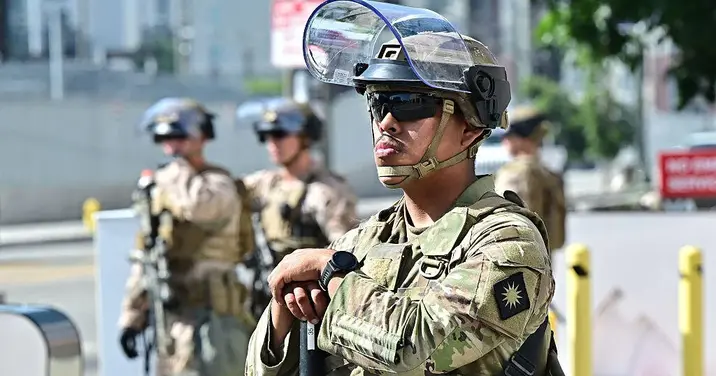
Three officials testified about the Los Angeles National Guard deployment, examining legal boundaries and the use of Title 10 in protests.
LA deployment tests limits of federal military authority
Three officials testified in the Los Angeles case over whether the deployment of roughly 4,000 California National Guard troops and some Marines violated the Posse Comitatus Act. The dispute centers on whether federal troops could assist local police during protests without crossing into domestic law enforcement. Governor Newsom has called the action an illegal power grab, while the Trump administration says Title 10 allows action when local forces cannot manage the situation.
Maj. Gen. Scott Sherman testified that he never heard the term rebellion used to describe the events in Los Angeles, a point that drew attention from the presiding judge. The case has been shaped by an appellate ruling that gave the president some deference to determine Title 10 applicability, while leaving open questions about the exact definition of rebellion. Separately, officials from DHS and Defense discussed the mission as protecting federal facilities and personnel, with limited police-like duties. The deployment has already been reduced, and Washington announced a separate, limited guard presence in the capital.
Key Takeaways
"The line between protection and overreach is thinner than it seems"
Editorial reflection on civil-military boundaries following testimony
"Threat evolves and so must the mandate"
Comment on adaptive risk assessment during operations
"Public trust rests on clear limits not loose interpretations"
Public accountability argument
"Judges will decide if power was used properly and within law"
Legal framing
The case tests the boundary between state sovereignty and federal power when troops are asked to support law enforcement. It hinges on how the Posse Comitatus Act is interpreted and how flexible Title 10 can be in a fast-changing protest environment.
Second, the hearing exposes a broader tension in public life: can courts and lawmakers provide clear guardrails for executive action without magnifying political fallout? The outcome could reverberate in future crises, where the line between enforcement and protection is redrawn in real time.
Highlights
- Borders between safety and overreach are decided in courtrooms
- Threats shape orders, not the other way around
- Public trust rests on clear guardrails not vague powers
- Judges will decide if power was used properly and within law
Political and legal risk over LA deployment
The case highlights tensions between federal power and state authority over military aid to law enforcement, with potential backlash from lawmakers and the public. The legal questions may affect future deployments and oversight.
Power, policy, and the public trust all ride on the outcome.
Enjoyed this? Let your friends know!
Related News
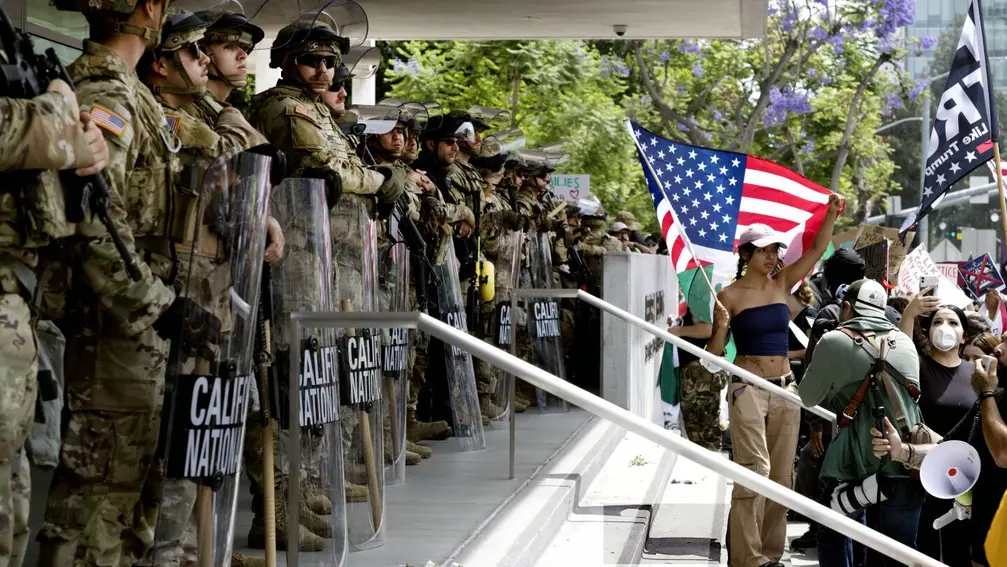
Ruling on military involvement in immigration enforcement

Blue city mayors push back against Trump's plan to federalize DC police
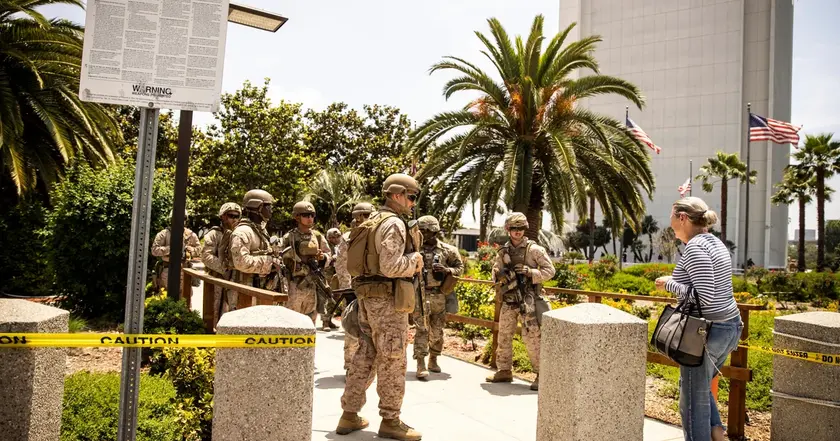
Judge weighs limits on presidential authority in National Guard deployment
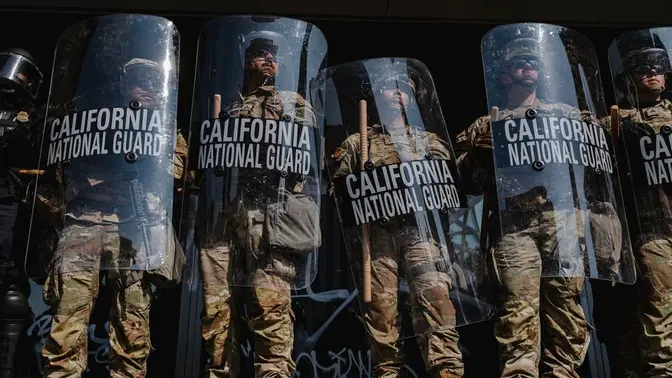
Trump National Guard case heads to California court
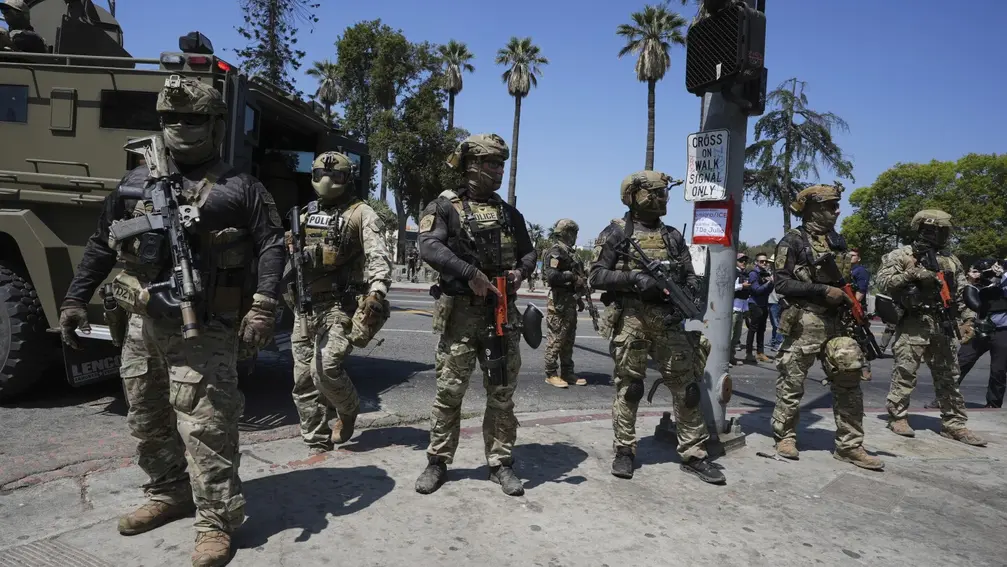
Posse Comitatus Debate Reaches Court
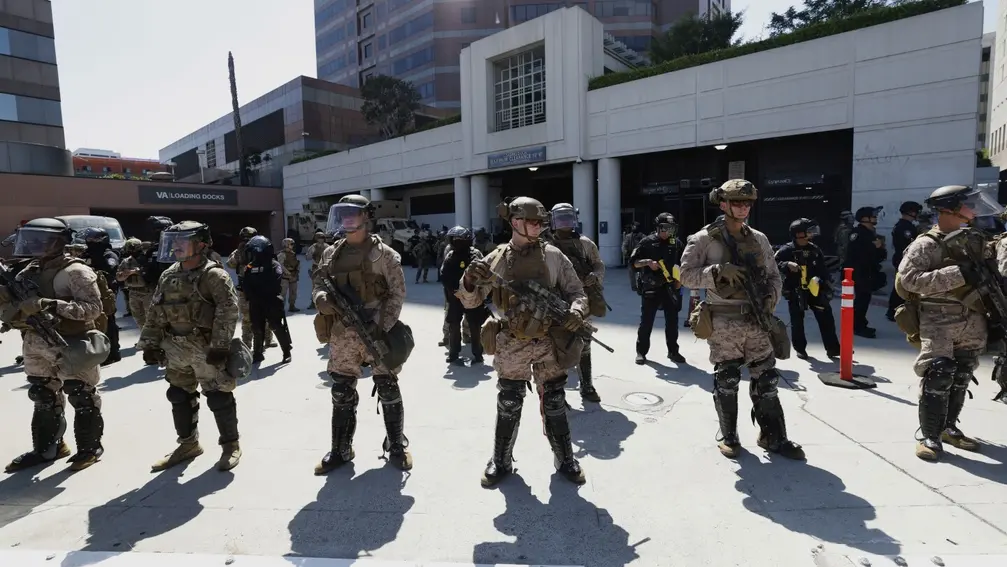
Pentagon withdraws 700 Marines from Los Angeles
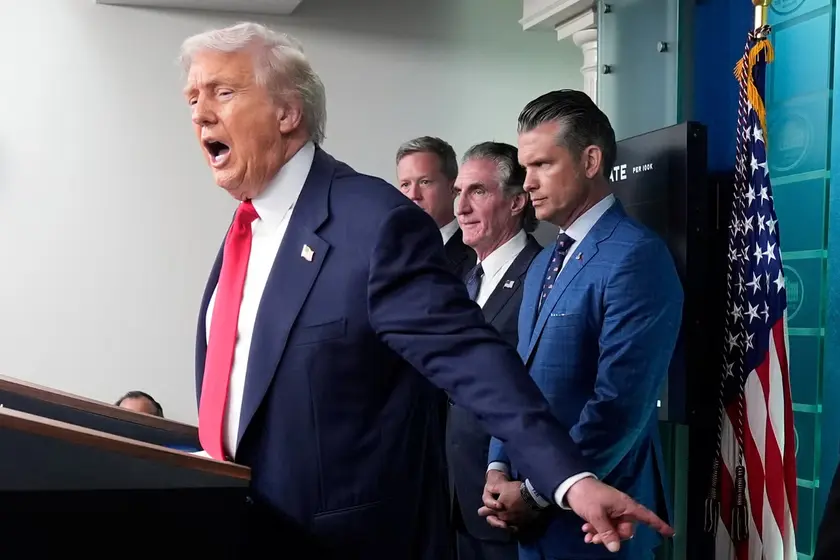
Trump moves to seize DC police control

Trump signals peace talks with Russia ahead of Alaska summit
